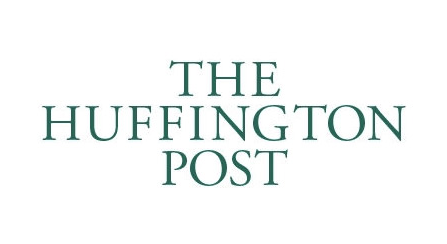Hospice Fraud
The Benevolent Mission of Hospice has Been Corrupted by Greed.
The nurse pictured above caring for her dying patient is Dame Cicely Saunders, a British nurse-physician-Christian-activist who first founded hospice for the dying in the 1960s as both a benevolent mission and medical discipline. Dame Saunders believed that human beings deserved to be treated with dignity and respect during the otherwise difficult and often painful transition from life to death.
“You matter because you are you, and you matter to the end of your life. We will do all we can, not only to help you die peacefully, but also to live until you die.” – Cicely Saunders, founder of the concept of hospice care
Sadly, the past ten years have seen Dame Saunders’ promise all but abandoned by the corporate takeover of hospice by investors hell-bent on putting profits over people. While nurses, doctors, chaplains, social-workers, and other interdisciplinary team members struggle to give their patients the best care, they too often find themselves fighting relentless demands of their corporate counterparts to increase censuses at all costs and swell admissions of “first-time Medicare patients” who end up being treated as nothing more than billing numbers. “Today, it cannot credibly be argued that hospice bears any resemblance to the once humble, beloved, charity-based arm of the health care industry; rather, it is big business and a major source of investor revenue in the United States,” writes Jim Barger in Georgetown’s American Criminal Law Review.
Frohsin Barger & Walthall Attorneys Have Dedicated Their Careers to Exposing and Fighting Hospice Fraud.
“[T]he root of the problem is that a company profits when it admits patients who aren’t dying, and it is the hospice itself that helps determine whether a patient is dying,” — Washington Post reporters Peter Whorinsky and Dan Keating interviewing Jim Barger in a 2014 investigative feature on the growing problem of hospice fraud. “Honestly, it makes me ill,” said Barger.
Jim Barger and Elliott Walthall are the only private attorneys general in the country ever to be tapped to serve as members of a Department of Justice trial team in a Medicare hospice jury trial under the False Claims Act. Their representation of hospice nurses, doctors, and professionals who have blown the whistle on corporate greed dates back nearly a decade, when they first won one of the earliest and largest Medicare hospice fraud settlements in the nation against Southerncare, Inc., recovering almost $25 million for U.S. taxpayers and their client, a dedicated hospice nurse and internal auditor. Since that time, Frohsin Barger & Walthall has continued to represent hospice whistleblowers across the country who bravely come forward to stand up for the dignity and rights of their patients and against corporate corruption, greed, and fraud.
Jim Barger is an Academic and Opinion Leader on Hospice Fraud and the False Claims Act.
A noted expert on the False Claims Act (FCA) in general and Medicare hospice fraud in particular, Jim Barger teaches upper-level courses on the FCA and fraud as an adjunct professor at the University of Alabama School of Law, ranked among the nation’s top 15 law schools by Business Insider in 2016. Barger has appeared on HuffPost Live, Fox 6 Atlanta, and National Public Radio. His opinions on FCA Medicare enforcement are regularly sought by major newspaper outlets, including The New York Times, The Washington Post, and The Dallas Morning News. He has spoken on national panels about hospice fraud for the American Bar Association, the American Association for Justice, Taxpayers Against Fraud, and the Georgetown Law Center in Washington, DC. In 2016, Georgetown’s American Criminal Law Review published Barger’s seminal research article on the history of hospice and fraud in America, Life, Death & Medicare Fraud: The Corruption of Hospice and What the Private-Public Partnership Under the False Claims Act is Doing About It.
Frohsin Barger & Walthall Represents Whistleblowers Nationwide.
Frohsin Barger & Walthall investigates and litigates qui tam actions on behalf of whistleblowers in federal and state actions across the country. Our representation includes evaluating, investigating, and filing qui tam actions, as well as assisting prosecutors and investigative agents in pursuing cases and reaching settlements, with a high percentage of our cases resulting in government intervention. We have sealed cases in multiple states across the country and regularly travel to meet with United States Attorney’s offices, State Attorney General Offices, and United States Department of Justice attorneys in Washington, DC.
The False Claims Act Offers Protection and Rewards for Whistleblowers.
Blowing the whistle on corporate fraud takes courage, and the law rewards that courage with certain protections. We understand that one of the most important aspects of representing corporate whistleblowers is guiding and protecting them through the difficult and stressful process of litigation. The False Claims Act (FCA) provides for a whistleblower’s case to be filed under seal and the identity of the whistleblower to be protected during the course of the government’s investigation. Further, federal laws protect against retaliation by mandating the reinstatement of wrongfully fired employees at the same seniority level, as well as an award of double back-pay, interest, and attorneys’ fees. Finally, successful whistleblowers are entitled to receive up to 30% of any FCA recovery, which Congress has mandated is three times the amount of fraud that is proved through the whistleblower’s allegations, plus substantial civil penalties.




